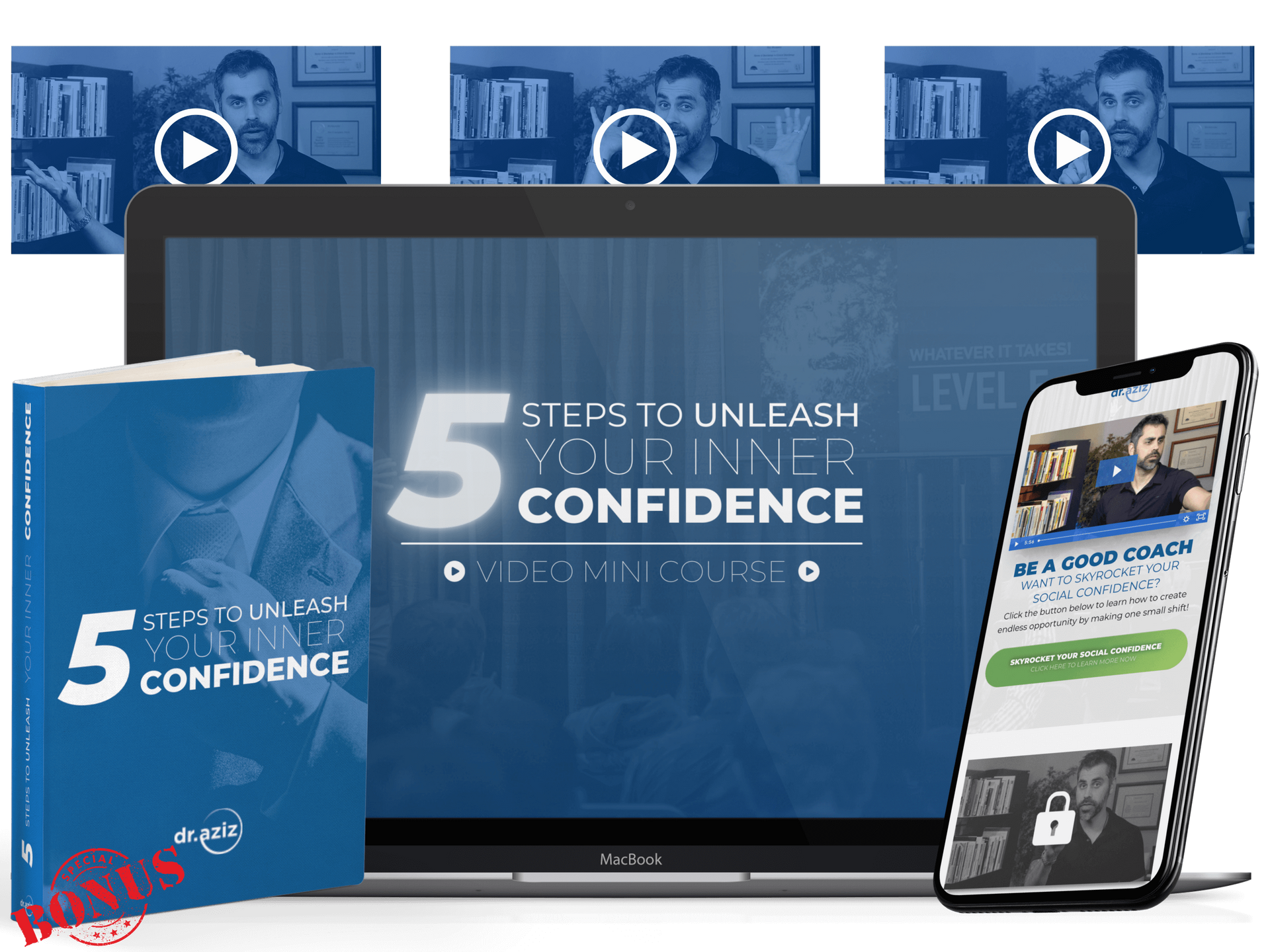If You’re Too Nice And Worried About Other People’s Feelings…
Jul 17, 2022Do you take on too much responsibility for other people’s feelings?
Do you feel like you spend every minute of every day trying to please people and worrying about whether you’ve said the wrong thing?
This is an extremely common habit that plagues almost everyone who thinks of themselves as good, conscientious, card-carrying empaths . . . and I can totally relate.
To be honest, I spent a massive percentage of my life engaging in what I like to call “over-responsibility.”
Over-responsibility: feeling personally responsible for the feelings of everyone else around you.
This is something I talk about a lot in my book, Not Nice:
- We see that someone else is sad, so we rush over to take care of them.
- We see that someone is upset or angry, and we immediately assume we must have done something wrong.
- We get a request from someone, and we feel obligated to meet that demand, no matter how it inconveniences us or how it might conflict with our needs.
Whether we’re overly concerned with keeping other people happy or simply obsessed with putting other people’s feelings first, we live our lives being emotionally reactive to other people and basing our own senses of security and fulfillment on something we can’t control.
If it hasn’t been made completely obvious, this is a debilitating way to live your life.
When you live your life for other people’s emotions, you can never fully move past a situation—something happens, and we hold onto it long after the moment passes.
When we take over responsibility for someone else’s emotions, it almost feels as though we take on the entire emotional life and history of the other person. We imagine their circumstances so fully that we begin to carry the weight of their problems, hopes, desires, and fears as if they were our own.
If this is your reality, you will never be able to completely shake the tight, heavy feeling of anxiety that comes with over-responsibility. Nobody can find happiness this way.
If this sounds familiar, then there is only one path for you: you must learn to let go.
Now, I know more than anyone how hard this is to do . . . because I’ve experienced that feeling of the psyche resisting the attempt to let go. For those of us who’ve spent our lives in emotional responsibility overdrive, it sounds wrong not to worry about other people’s feelings more than our own—it is impossible to imagine that we’re not responsible for their happiness.
But what if that’s all wrong?
What if you’re not in charge of anyone’s problems?
What if you don’t owe anybody anything?
The problem with most people who take over the responsibility for other people’s feelings is that they believe it is a show of love.
Over-responsibility does not love—it is codependence.
Think about it like it’s a drug: you start out with a bit of emotional responsibility for one other person, and maybe that feels good for a bit but then you get addicted to that small satisfaction and need more.
After a while, you have to start asking: How many people can I keep carrying on my back before the emotional strain starts to eat me up from the inside?
Fact: you will never find satisfaction by linking your life’s happiness and fulfillment to someone else’s unstable emotions.
Firstly, you have your own life, dreams, challenges, history, and desires to worry about. Secondly, you can actually give so much more to others when you’re not constantly burdened energetically and emotionally by the weight of over-responsibility.
If you notice that you’ve begun taking on too much responsibility for other people’s emotions, then you need to take a step back. Take a deep breath, put your hands up, and (lovingly) create some space between you and that person’s problems.
To someone else, you are just a character in their life: it is not your story; it is not your history; it is not your responsibility.
When it comes to other people, you are free to do what you can to help them, but ultimately, their happiness and emotions are their own responsibility.
More importantly, it is okay for you to feel happiness, even when someone else doesn’t.
It is okay for you to feel light, free, joyous, and prosperous, even if someone else is struggling or having a bad day—even if they’re upset about something that they think was your fault.
You have to learn to separate your emotions from other people’s—to understand when someone’s needs are real and when they’re just using blame to make you their emotional hostage.
When we go into every interaction concerned only with not upsetting anyone, we hold resentment against that person, whether we notice it consciously or not. If we can learn to let that need go so that we release ourselves of emotional over-responsibility, we will naturally be more present, available, and loving.
You are not to blame for other people’s problems, and you are not responsible for other people’s happiness.
You have permission to let that all go for the first time in your life and try another path.
I promise you: this will not make you a bad person. In fact, it might just make room for you to become the person you were always meant to be.
Now, for those of you who might need a little more guidance through the practice of letting go for the first time, I recommend that you check out my book, Not Nice. You can also access my program, Confidence University by visiting my website, TheConfidenceUniversity.com. Through this program, you’ll be introduced to the habits, practices, and action steps necessary to take back your life and be bolder yourself.
In the meantime, please leave your questions and thoughts in the comments below. Have you noticed this pattern of over-responsibility in yourself lately? What triggers this response in you? Who can you probably take a step back from in order to make more room for your own emotional needs? What event finally convinced you to allow yourself permission to let go? We learn best when we learn from each other, so keep sharing your experiences and spreading your wisdom.
Until we speak again, may you have the courage to be who you are and to know on a deep level that you’re awesome.
Reading blogs and watching videos online is a start...
When you are ready to radically transform your confidence so you speak up freely, boldly go after what you want, connect easily with others and be 100% unapologetically yourself, coaching is the answer.



